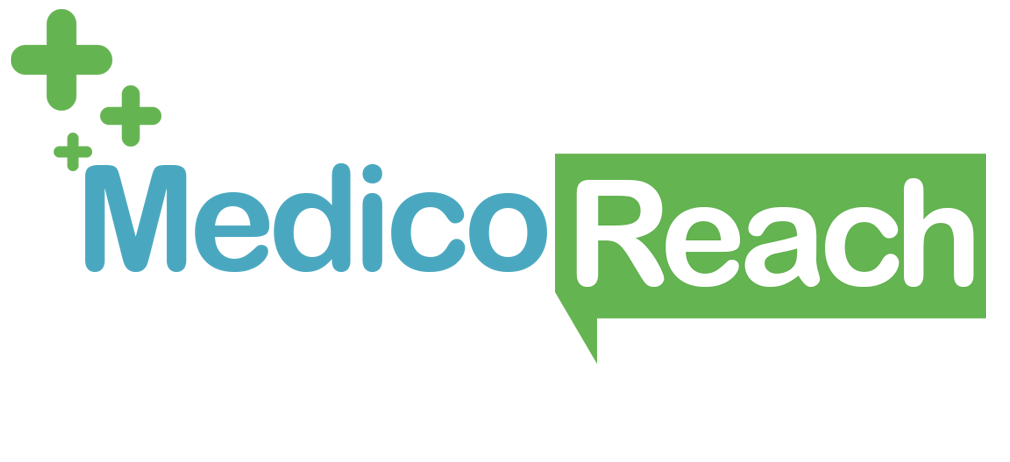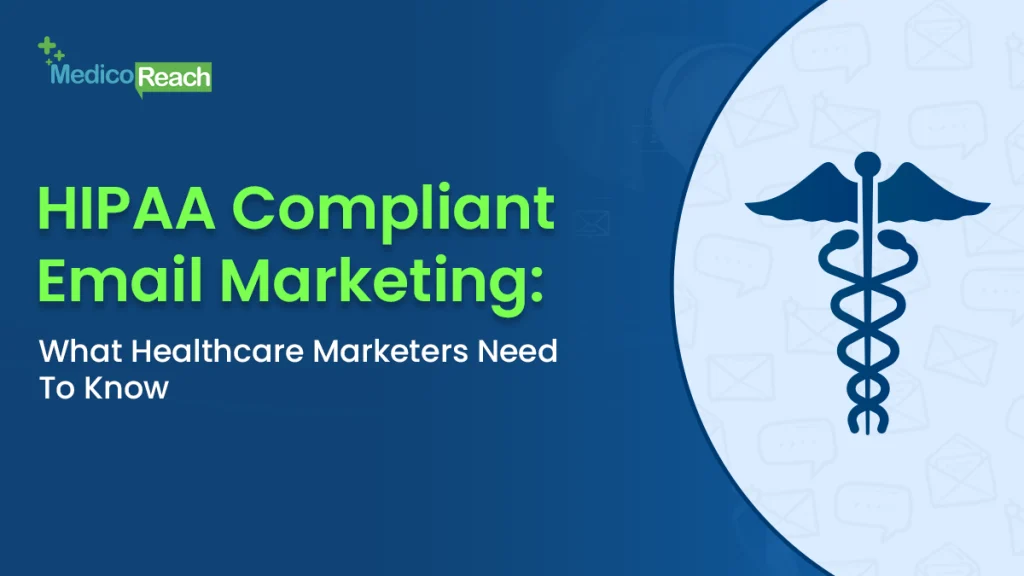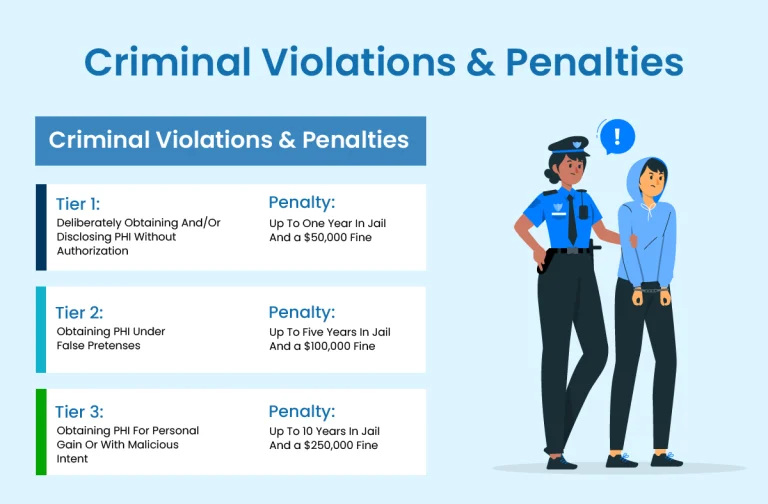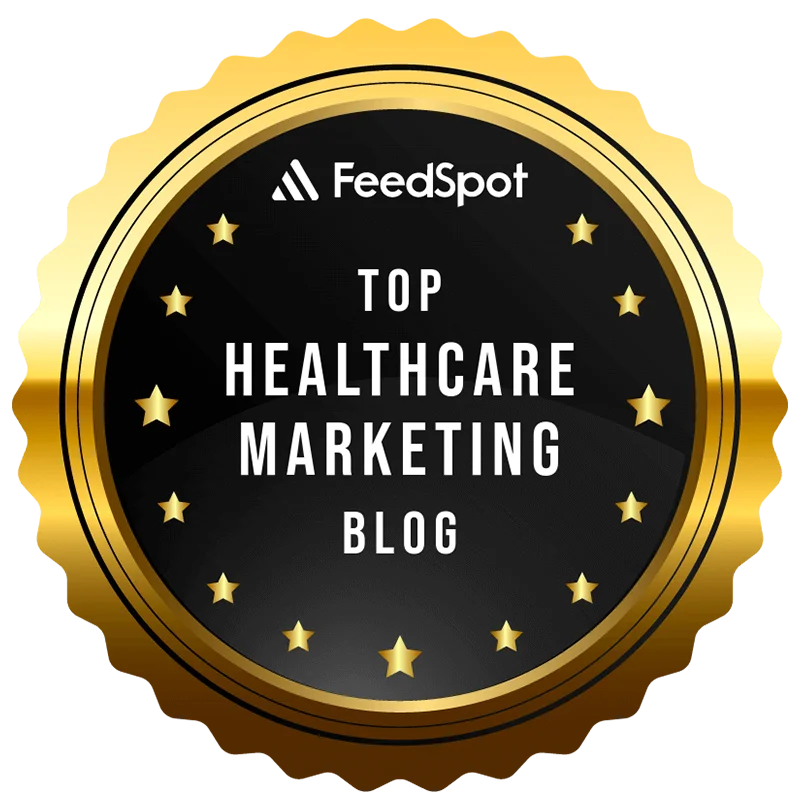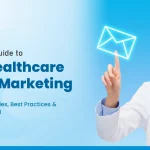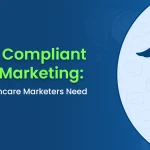If you are subjected to HIPAA regulations under any circumstance, think twice before hitting the send button. With any protected health information present in your email communication, you will be putting yourself and your organization at great risk if not aligned with HIPAA compliance. However, to avoid this risk, it is essential to understand what HIPAA is, its purpose, and the steps a marketer should follow to run HIPAA compliant email marketing campaigns.
What is HIPAA?
The HIPAA (Health Insurance Portability and Accountability Act) was legislated in 1996 by the U.S. Department of Health and Human Services. The Act was created to protect confidential patient information, enhancing the security surrounding patient information and providing patients more control over how much confidential information they wish to disclose. At the same time, healthcare providers must be in alignment with the universal set of rules and regulations.
Reason for HIPAA compliance:
HIPAA compliance is mandated for any healthcare provider that handles electronic transactions involving confidential patient information. Hospitals, specialized and general physicians, product and service providers, and home health organizations are expected to comply with this law. To achieve this, healthcare providers are expected to install specific hardware, such as firewalls and encryption tools, as well as secure servers, along with software like electronic health record (EHR) systems and secure messaging platforms, which help them effectively secure data when it is stored, accessed, updated, and transmitted.
Non-compliance with HIPAA regulations can have severe financial implications for companies. The penalties for violations can range from $100 to $50,000 per violation per year. This underscores the importance of understanding and adhering to HIPAA rules and regulations.
However, HIPAA is not directly applicable to all healthcare marketers; it is crucial for those who work with protected health information (PHI). As a marketer, if you handle health information, such as a patient’s name, medical history, treatment plans, addresses, and other information, understanding HIPAA rules and regulations is crucial for identifying a patient in such scenarios, as shown in the image below.
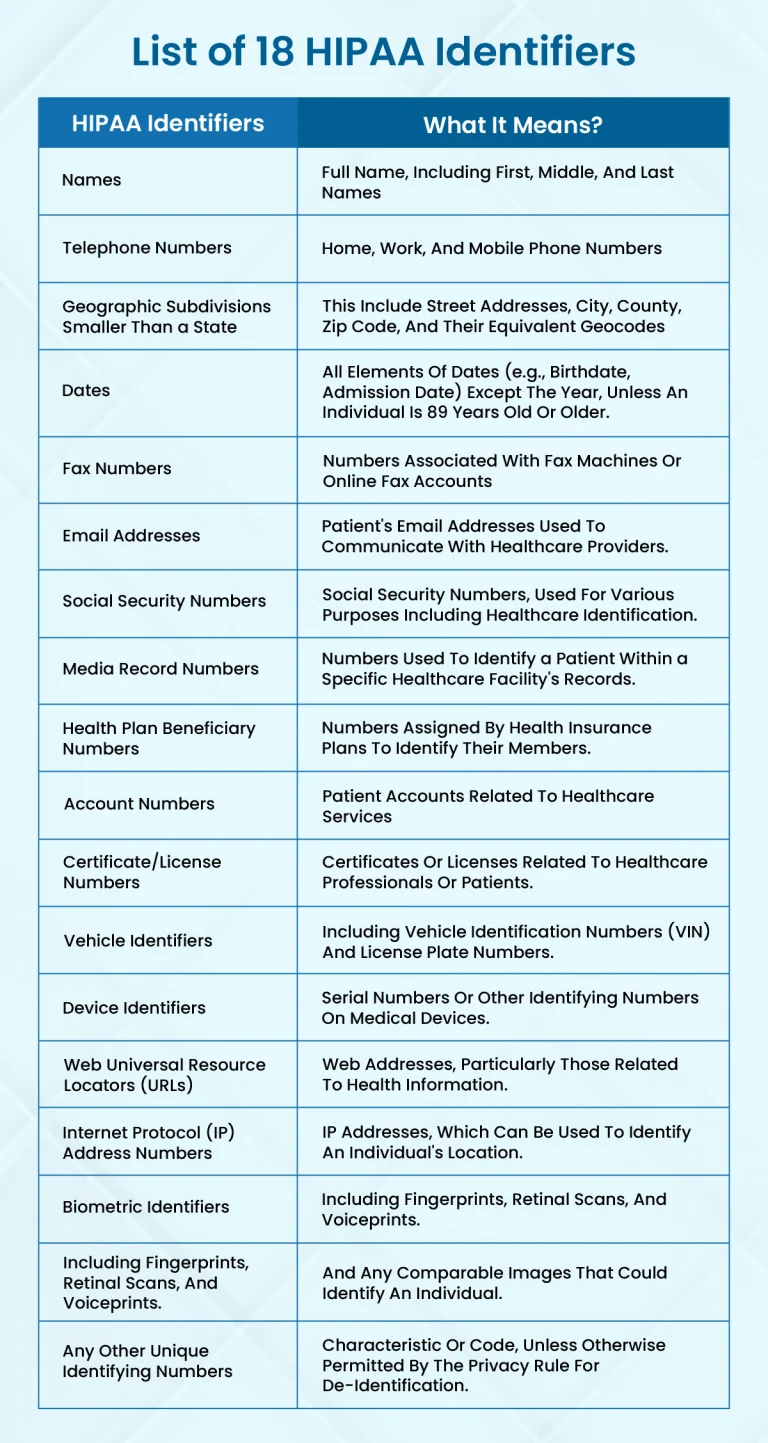
On the contrary, here are the following categories of information that are not considered protected health information:
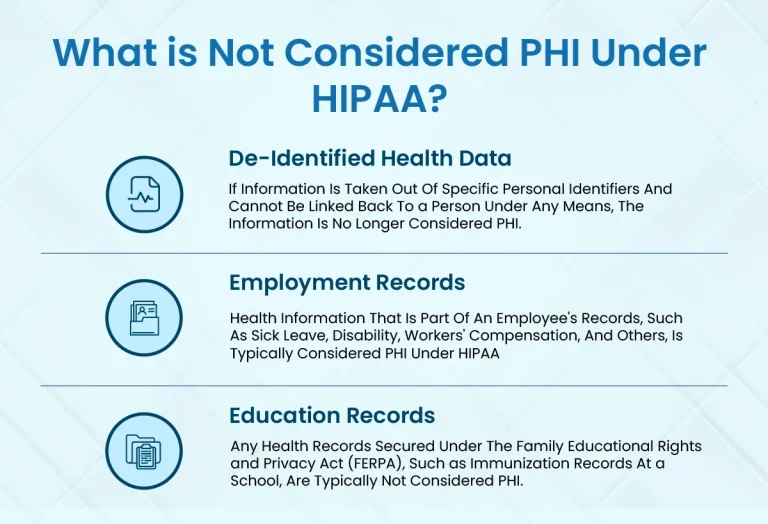
With a solid grasp of what PHI is and what it is not, the following section of the article will guide you through the essential steps to comply with the law, particularly the elements that pertain to email communication. It is the responsibility of every healthcare marketer who wishes to email campaigns containing protected healthcare information to strictly adhere to the rules and regulations detailed below.***None of the information in the blog should be considered legal advice; however, consulting a legal expert is crucial to ensure that your organization adheres to applicable rules and regulations, particularly in the context of HIPAA compliance. ***
Best Practices for HIPAA-Compliant Email Marketing:
An organization running email marketing campaigns with the assistance of a third-party email list must ensure that the email list is HIPAA compliant. As HIPAA requires covered entities, such as healthcare providers, to maintain the confidentiality of protected health information (PHI).
- Network server segmentation: Network server breaches affect individuals, so it is best to separate email marketing servers from primary network servers. Limiting the spread of attack.
- Zero-trust architect: Continuously verify email marketing systems, as they encompass protected healthcare information.
- Data Redaction & Anonymization: Redact all protected healthcare information; this step is crucial for any IT organization that lacks proper technical support.
- Role-based access with monitoring: Limited access to the marketing list facilitates monitoring of abnormal access attempts. The organization can opt for an automated monitoring tool.
- Phishing resilience training: Phishing scams are a real concern, and so far, the HHS Office for Civil Rights (OCR) has received 369,107 complaints related to HIPAA violations. Therefore it is essential to regularly conduct awareness and training programs that take into consideration real-world scenarios, such as fraudulent emails posing as legitimate healthcare organizations or requests for sensitive information. These scenarios can help employees recognize and respond to potential threats.
- Regular penetration technique: Run a continuous test to determine the penetration level of the marketing systems email. Organizations can hire external specialties or in-house teams.
- Content review mechanism: Implement a quality parameter that requires the compliance expert to approve campaigns that adhere to all HIPAA regulations.
- Content Optimization: The healthcare data provider should offer patients the option to opt in or out of providing their information.
- Regular training: The journey towards HIPAA compliance is not a one-time event but a continuous process. It’s essential to provide ongoing training to your employees on how to stay compliant with HIPAA rules. This involves providing new opportunities for staff to learn about recent developments in HIPAA compliance, which will refresh their skills and keep them up to date with the latest regulations.
- Limitation of email disclaimer: It’s essential to recognize that merely adding a HIPAA disclaimer doesn’t guarantee compliance. Instead, as a business, you must actively choose to remain HIPAA compliant and implement a range of measures to ensure the protection of PHI.
Key Factors for Choosing HIPAA-compliant Provider:
Not every email marketing platform that businesses work with is HIPAA compliant. However, there are a few reliable HIPAA-compliant email marketing platforms that you can trust, including Paubax, Eloqua, Cured, ActiveCampaign, Constant Contact, Infusionsoft by Keap, LuxSci, Hushmail, MailHippo, etc. These are some of the best platforms in the market, as they adhere to the following parameters.
- Encryption Standards and Technical Safeguards: Every HIPAA-compliant provider must utilize strong encryption algorithms applicable to both data in transit and data at rest. Currently, AES-256 is recognized as a secure and robust encryption standard for maintaining the security of Electronic Protected Health Information (ePHI). There are a few more methods that provide strong encryption algorithms, for example (AES-128, AES-192, TLS 1.2/1.3, IPSec VPNs, OpenPGP, and S/MIME).
- Business Associate Agreement Willingness: The willingness of a provider to sign a Business Associate Agreement (BAA) is a strong indicator of their commitment to HIPAA compliance. This legal contract, mandated by HIPAA, is used when a covered entity that works with protected healthcare information is ready to commit to and sign a Business Associate Agreement (BAA), providing you with a sense of security and reassurance.
- Track Record and Reputation: When selecting a HIPAA-compliant provider, it’s essential to evaluate their track record and reputation. A provider with a strong history of compliance and a good reputation in the industry can instil confidence in your choice.
HIPAA-compliant email marketing information providers typically include audit logging features, which involve a detailed record of email activity involving protected health information. These audit logs play a crucial role in maintaining HIPAA compliance by providing a comprehensive record of all activities related to ePHI, thereby helping organizations ensure the security and privacy of patient data.
- Customer Support and Compliance Expertise: HIPAA regulations are complex and can be challenging to interpret and implement. That’s why it’s essential to select a provider that offers comprehensive customer support and expertise in compliance. This will give the organization confidence in understanding and adhering to these regulations.
- Pricing Transparency and Hidden Cost: Maintaining robust security measures and keeping up with regular HIPAA updates can be very expensive. The costs can include investing in secure infrastructure, regular security audits, and training staff on HIPAA compliance. Additionally, any healthcare database provider that has a Business Associate Agreement (BAA), which ensures that the provider’s system and processes are HIPAA compliant, will also incur costs.
- Provider Willingness to Undergo Audits: The willingness of HIPAA-compliant database providers to undergo audits is crucial, as it demonstrates their commitment to protecting sensitive data and maintaining a high level of transparency and accountability.
Consider all these key factors when selecting a platform for HIPAA-compliant email marketing automation.
HIPAA Violation Penalties:
Any organization that violates HIPAA email policies will face severe penalties, ranging from substantial financial fines to potential legal charges. The gravity of these penalties should serve as a stark reminder of the importance of adhering strictly to HIPAA regulations. Moreover, in recent years, Anthem Inc. has been fined a staggering $16 million due to a data breach, underscoring the serious consequences of non-compliance.
However, it’s crucial to note that the penalty an organization faces is influenced by the nature and severity of the violation, as well as the organization’s record and history of compliance. Bringing to our attention the importance of maintaining a clean compliance record to mitigate potential penalties.
The Department of Health and Human Services (HHS) can impose civil penalties for HIPAA violations, which can have a significant financial impact on an organization. These penalties vary based on the level of culpability, making it not just important but urgent to implement robust prevention strategies to avoid such penalties.
They use a tiered system to determine penalties for HIPAA violations. The different tiers for violations range from reasonable cause, lack of knowledge, neglect not corrected within 30 days to willful neglect. The image below provides a detailed overview of the types of penalties an organization might face.
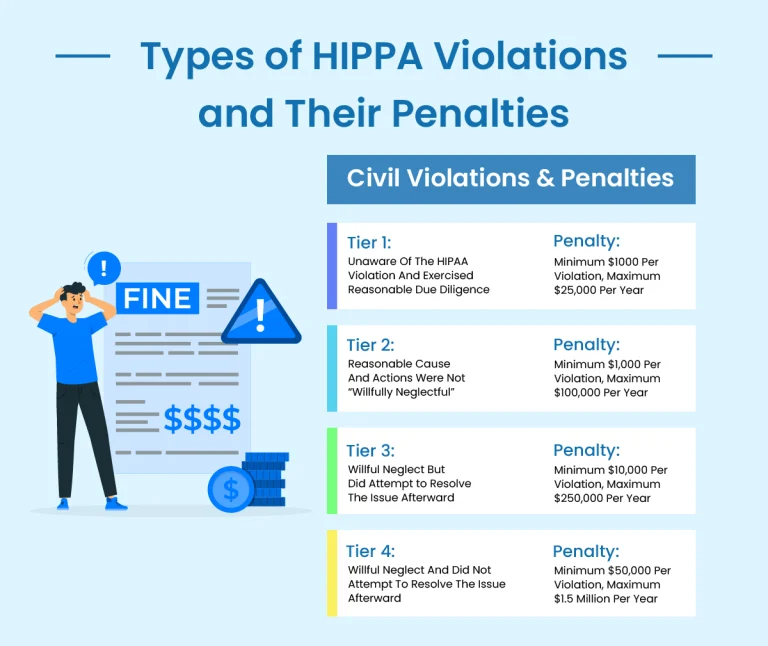
How Do Healthcare Marketers Avoid These HIPAA Penalties?
Being in alignment with HIPAA is the top priority; however, here are a few additional steps you can take as an organization to further enhance your compliance.
- Don’t share passwords to a system containing PHI.
- Don’t leave systems unsecured and unattended.
- Using secure channels of communication
- Disposing of PHI improperly
- Accessing PHI out of curiosity.
- Sharing PHI on social media without authorization.
- Downloading PHI on unauthorized devices
Conclusions
To sum it up, every healthcare marketer handling sensitive patient information should adhere to HIPAA email marketing guidelines. As an organization, you can rest assured that you can easily achieve this by following the best practices mentioned in the blog to run HIPAA-compliant email marketing and find a HIPAA-compliant platform. After all, the law was created to protect the patient’s privacy, standardize administrative processes, track information, and reduce fraudulent activities. Putting together all of these accurate security measures ensuring individuals’ information is not used in discriminatory ways.
Frequently Asked Questions:
Is MedicoReach’s Healthcare Database HIPAA compliant?
No, At MedicoReach, we offer a B2B healthcare database. It doesn’t contain any protected healthcare information (PHI); therefore, it is not subjected to HIPAA compliance. The database contains contact records of healthcare professionals, hospitals, clinics, private practices, and other organizations and individuals working in the healthcare sector.
For running email campaigns targeting these facilities or individuals, your email communication doesn’t need to be HIPAA compliant.
What is PHI?
PHI is protected healthcare information, which includes a patient’s name, email address, contact number, treatment procedure, and fourteen other PHI identifiers. Any information that can help identify an individual is considered PHI and is subject to HIPAA compliance.
What are the key steps to ensure email marketing is HIPAA compliant?
Here are a few steps that ensure that email marketing is HIPAA compliant. (You either have to be aligned with the following practices. Or work with a platform that follows these practices)
- Utilize an email platform to obtain explicit patient authorization.
- Minimize the use of protected healthcare information in email communications.
- Utilize encryption to protect your email messages both when stored and when in transit.
- Employees who handle protected healthcare information (PHI) must undergo regular training.
